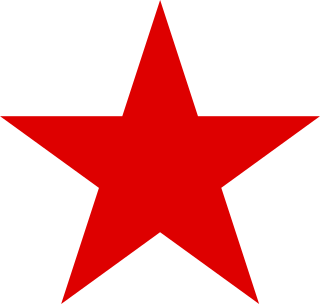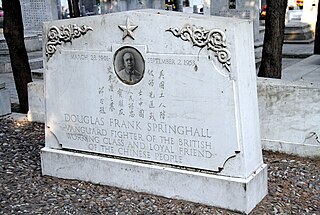Frank Foulkes (born 1899) was a British trade unionist. One of the most prominent communist trade union leaders in the United Kingdom, he left office after being convicted of involvement in rigging an election.

The British people, or the Britons, are the citizens of the United Kingdom of Great Britain and Northern Ireland, the British Overseas Territories, and the Crown dependencies. British nationality law governs modern British citizenship and nationality, which can be acquired, for instance, by descent from British nationals. When used in a historical context, "British" or "Britons" can refer to the Celtic Britons, the indigenous inhabitants of Great Britain and Brittany, whose surviving members are the modern Welsh people, Cornish people, and Bretons. It may also refer to citizens of the former British Empire.
Foulkes completed an apprenticeship as an electrician and joined the Electrical Trades Union. He also became active in the Labour Party, and at the 1929 UK general election was an election agent for the party. However, soon after the election, he instead joined the Communist Party of Great Britain (CPGB). [1]
The Labour Party is a centre-left political party in the United Kingdom which has been described as an alliance of social democrats, democratic socialists and trade unionists. The party's platform emphasises greater state intervention, social justice and strengthening workers' rights.
In elections in the United Kingdom, as well as in certain other similar political systems such as India's, an election agent is the person legally responsible for the conduct of a candidate's political campaign and to whom election material is sent to by those running the election. In elections in the United Kingdom a candidate may be his or her own election agent. The Electoral Commission provides periodic guidance for candidates and agents of which the latest is for the 2017 British general election.

The Communist Party of Great Britain (CPGB) was the largest communist party in Great Britain, although it never became a mass party like those in France and Italy. It existed from 1920 to 1991.
Foulkes gradually came to prominence in the ETU, initially becoming a shop steward, then serving on branch and district committees before working full-time for the union as an official based in Merseyside. [1] In 1942, he was elected as the union's national organiser, in which role he became known for his negotiation skills. This led him, in 1946, to win election as the union's General President. [2] In 1954, he led a major one-day strike of electricians. He also served as President of the Confederation of Shipbuilding and Engineering Unions in 1959/60. [1]
Shop stewards are representatives of labour unions. Unlike other union representatives, stewards work on the shop floor, connecting workers with union officials at regional or national levels.

Merseyside is a metropolitan county in North West England, with a population of 1.38 million. It encompasses the metropolitan area centred on both banks of the lower reaches of the Mersey Estuary and comprises five metropolitan boroughs: Knowsley, St Helens, Sefton, Wirral, and the city of Liverpool. Merseyside, which was created on 1 April 1974 as a result of the Local Government Act 1972, takes its name from the River Mersey.

The Confederation of Shipbuilding and Engineering Unions (CSEU), often known as the Confed is a trade union confederation in the United Kingdom.
In 1959, the union's general secretary, Frank Haxell, also a CPGB member, narrowly won a bid for re-election against Jock Byrne. Byrne and Frank Chapple took Foulkes, Haxell and thirteen other CPGB members to court, alleging that the election had been fixed. In 1961, they won the case, and Byrne was installed as general secretary. [3] Foulkes argued that he had no knowledge of any fraud and so should retain his position, but he lost a second court case in 1962 on the grounds that, given his oversight role, he should have been aware that the election was rigged. He then decided to take early retirement, receiving a pension from the union despite the opposition of its new leadership. [1]
Frank Leslie Haxell was a British trade unionist and communist activist.
John Thomas Byrne was a Scottish trade union leader and anti-communist activist.

Frank Chapple, Baron Chapple of Hoxton was general secretary of the Electrical, Electronic, Telecommunications and Plumbing Union (EETPU), a leading British trade union.




